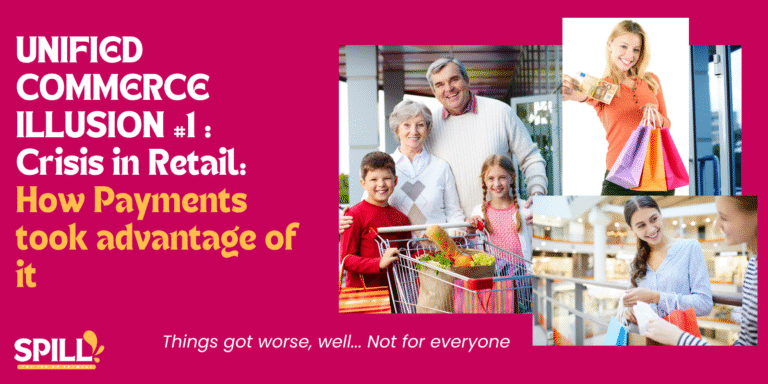“You will see when we will use Open Banking.”
For 10 years, I’ve heard this. Everything is here: friendly regulations, technology actors, use cases, and even the schemes that opportunistically bet on it (Visa acquired Open banking provider Tink in 2021). Consultants wrote tons of content on that. Even the payment geeks support it. But still, we don’t see goddamn transactions. There is even a noise starting to grow on the fact that Open Banking is actually not the revolution sold. Open Banking, a typical failure we can make in Europe?
In Britain, we see nice UX demos on how to order a pizza with Open Banking, but… still no boom.
It’s getting so annoying that we doubled down on A2A at the end of 2024. Everyone said:
“2025 is the year of A2A!”
And yet, another buzzword takes its seat: stablecoins. Too bad…
Why Is Open Banking Getting So Annoying?
Banks don’t want to let go of retail payments. They want to stay in control. Hence, explaining the potential Open Banking failure in Europe
Card payments are still the most preferred payment method globally, even hidden behind a mobile wallet. Card rails are alive, simple and efficient. Banks are the main beneficiaries of the generous interchange of card schemes.
Then there’s the processing of an OB payment: a nightmare. APIs are not standardised. Nobody thought about the framework when designing PSD2. Lawmakers just stupidly said:
“You banks are bad, responsible for all problems. Let’s punish you and put some competition, and we will see.”
Well, too bad again, we saw it did not work…
PSD3 or Wero? Not the Answer for consumers
We can argue that PSD3 will make things more standard and constrain the “bad banks.”
But that’s a naive view of what’s playing. Banks simply try to organise better, not to lose their lifeline with their customers. Wero is the perfect example.
We are bombarded by Wero’s presence, they’re everywhere. Those small actors from OB do not have the same capacity as a group of banks to promote their solution to merchants and consumers.
Did I say Wero works better? Still not convinced. I tried this morning to pay 15 euros with it took me 10 minutes.
Finally, the consumers might not be receptive to the OB offer, nor the Wero one. Card payment is cheap and accessible all over the EU. And if they can’t pay with cards, there are alternatives like PayPal.
Why would we need another alternative? Again, another sign of Open Banking failure in Europe
It’s a Deeper Story: Innovation by Regulation Doesn’t Work
But this reveals something way more interesting: Innovation by regulation does not work.
If OB had organically emerged as a force to constrain banks, maybe lawmakers could have followed by making a framework to make it viable. But the story was told in reverse. We tried to impose artificially something to make payment cheaper and more “innovative”
And also, because OB is the guest that nobody invited to the party, but still comes to try to take a seat. Like an old lady at a teenager’s party, dressed like Gen Z but being delulu.
A nice Lessons from South Korea
OB is not a bad idea, but we never succeeded in importing it globally, not like Airbus. Even in high digital payment countries, Open Banking in the European way does not exist as such.
Let’s take the example of South Korea.
A long tradition of A2A payments. One of the first countries to use online banking. In 2001, there were 9 million users of online banking services! 20% of the total country population, according to an OECD report.
By then, 63% of non-cash payments were digital payments, including 40% of fund transfers (A2A) according to a BIS report.
Even in 2005 in the South Korean TV serie, My Name is Kim Sam Soon, we could see the main character, portrayed Hyunbin, transferring money to Kim Sam Soon. This testifies to how normal it was to pay by transfer, it was even appearing on TV. Did you see someone using OB on TV series in Europe?
With the quick acceleration of wallet usage (Kakao Pay, Naver Pay), an API platform was created by the Korea Financial Telecommunications and Clearings Institute (KFTC), in partnership with the Financial Services Commission (FSC) not as a mandate, but as a cooperative ecosystem to allow third party access banking account. South Korea viewed it right, using usage to drive adoption of a more efficient system for payment.
A bit like how in Europe, Apple Pay imposed a standard that banks had to accept, driven by consumer expectations and operational needs, because of… PSD II. What a paradox.
Conclusion: An Open Banking Prophecy Without Believers
We should finally get conscious that if we want to escape this whole non-realised prophecy in Europe, we should stop playing against banks, but also not play on the bank vs fintech narrative. This is totally unproductive.
For now, even Revolut, one of the most successful European Fintech companies, fights all it can to be your bank. And if it is, they will soon offer Wero.
Sounds like a bad joke.







